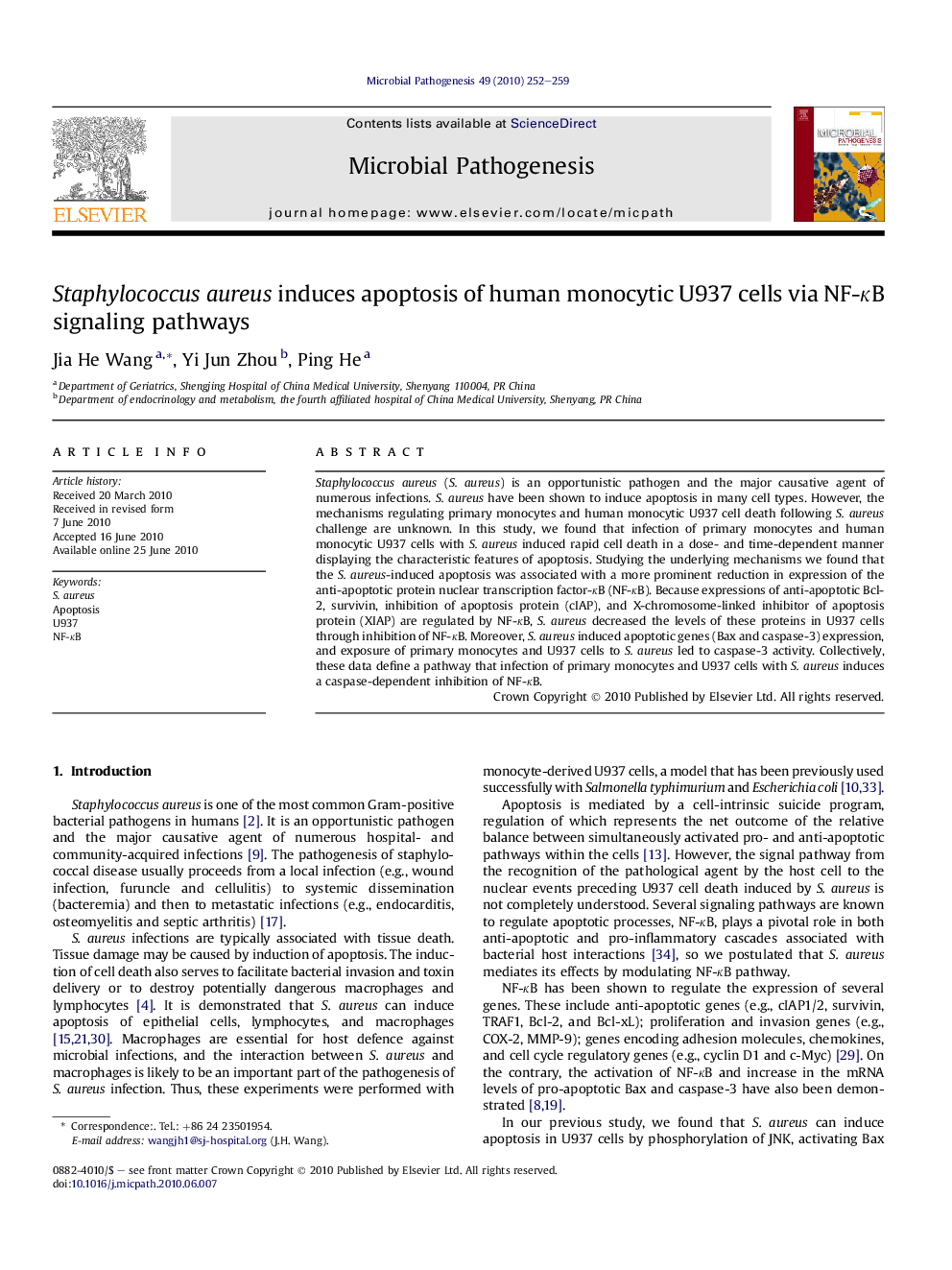| کد مقاله | کد نشریه | سال انتشار | مقاله انگلیسی | نسخه تمام متن |
|---|---|---|---|---|
| 3416906 | 1225160 | 2010 | 8 صفحه PDF | دانلود رایگان |

Staphylococcus aureus (S. aureus) is an opportunistic pathogen and the major causative agent of numerous infections. S. aureus have been shown to induce apoptosis in many cell types. However, the mechanisms regulating primary monocytes and human monocytic U937 cell death following S. aureus challenge are unknown. In this study, we found that infection of primary monocytes and human monocytic U937 cells with S. aureus induced rapid cell death in a dose- and time-dependent manner displaying the characteristic features of apoptosis. Studying the underlying mechanisms we found that the S. aureus-induced apoptosis was associated with a more prominent reduction in expression of the anti-apoptotic protein nuclear transcription factor-κB (NF-κB). Because expressions of anti-apoptotic Bcl-2, survivin, inhibition of apoptosis protein (cIAP), and X-chromosome-linked inhibitor of apoptosis protein (XIAP) are regulated by NF-κB, S. aureus decreased the levels of these proteins in U937 cells through inhibition of NF-κB. Moreover, S. aureus induced apoptotic genes (Bax and caspase-3) expression, and exposure of primary monocytes and U937 cells to S. aureus led to caspase-3 activity. Collectively, these data define a pathway that infection of primary monocytes and U937 cells with S. aureus induces a caspase-dependent inhibition of NF-κB.
Journal: Microbial Pathogenesis - Volume 49, Issue 5, November 2010, Pages 252–259